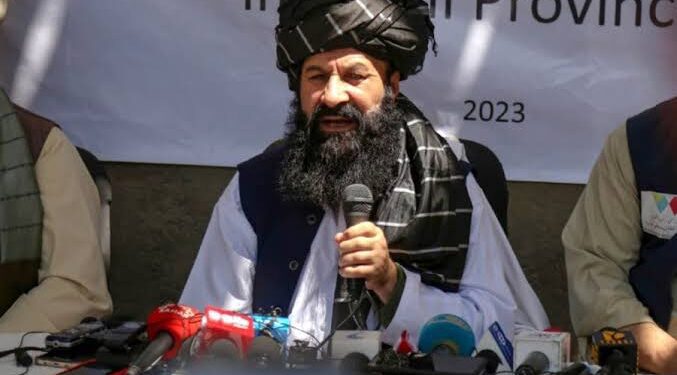Afghanistan’s acting minister for refugees, Khalil Ur-Rahman Haqqani, was killed in a suicide bombing in the capital, Kabul, on Wednesday, according to Taliban officials. The attack, which took place at the Ministry of Refugees and Repatriates Affairs, also claimed the lives of six others, making it one of the most significant losses for the Taliban since their return to power in 2021.
The Islamic State Khorasan Province (ISKP), a rival faction to the Taliban, claimed responsibility for the attack. According to their statement, an IS militant detonated explosives outside Haqqani’s office as he exited the premises.
The Haqqani Network Connection
Khalil Haqqani was a senior figure in the notorious Haqqani network, a powerful faction within the Taliban known for its role in Afghanistan’s two-decade insurgency. The U.S. had designated Khalil Haqqani a global terrorist and offered a $5 million reward for information leading to his capture. His nephew, Sirajuddin Haqqani, serves as the Taliban’s interior minister, highlighting the family’s deep involvement in Afghanistan’s governance and military activities.
The Haqqani network has been responsible for numerous high-profile attacks in Afghanistan, and its integration into the Taliban’s interim government marked a controversial moment in the country’s political landscape. Khalil Haqqani’s brother, Jalaluddin Haqqani, was a prominent figure during the Soviet-Afghan War and the founder of the network.
Attack Details and Aftermath
The bombing occurred as Khalil Haqqani was leaving the ministry after an afternoon prayer session. Reports indicate that the explosion was carried out by a suicide bomber positioned near the exit. The attack underscores the ongoing threat posed by ISKP in Afghanistan, despite the Taliban’s control over the country since the U.S.-led withdrawal in 2021.
Taliban spokesperson Zabihullah Mujahid condemned the incident, calling it a “cowardly attack” orchestrated by ISKP militants. Afghan Interior Ministry sources confirmed that the explosion was deliberate, with ISKP targeting one of the Taliban’s top officials.
Security Concerns in Taliban-Controlled Afghanistan
While overall security in Afghanistan has improved since the Taliban regained control, insurgent groups such as ISKP continue to pose a serious challenge. The Islamic State affiliate has claimed responsibility for dozens of attacks in the country, often targeting Taliban officials and public spaces.
The killing of Khalil Haqqani highlights the persistent instability in Afghanistan, where internal divisions and rivalries among militant factions remain a significant threat.
Regional and International Reactions
Pakistan’s Foreign Minister Ishaq Dar condemned the attack, expressing shock and calling for an end to terrorism in all its forms. The incident has drawn attention to the fragile security situation in Afghanistan, where the Taliban government continues to grapple with the dual challenges of governance and internal dissent.
Khalil Haqqani, who had been handling Afghanistan’s refugee crisis, leaves behind a complicated legacy tied to the Haqqani network’s controversial past and its current role in the Taliban administration. The attack marks a grim reminder of the challenges facing Afghanistan as it seeks stability amid ongoing conflict and international isolation.
Related Stories:
Foreign Minister showed solidarity toward the people of Afghanistan
Pakistan and Afghanistan discuss growing threat of TTP, ISKP
Hina Rabbani Khar met Afghanistan’s Foreign Minister in Kabul.
















